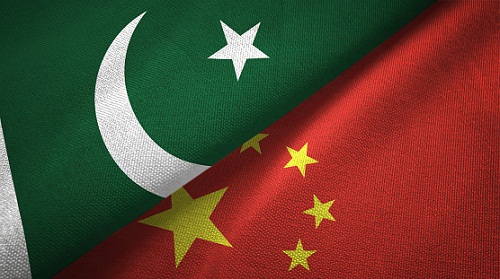DNA
ISLAMABAD, Sep 2: China Xinjiang’s region will deepen cooperation with Pakistan in medical field, Gwadar Pro reported on Saturday.
Recently, Senator Rana Mahmood-ul-Hassan and his delegation visited Xinjiang Medical University and had a symposium with school president Haji Akber Aisa to further strengthen exchanges and cooperation between Pakistan and Xinjiang Medical University in the fields of education and scientific research.
“In our previous exchange with BRI countries, we learned that they are very interested in traditional Chinese medicine(TCM), including Uygur, Kazak and Mongolian medicine,” said Haji Akber Aisa.
Xinjiang Medical University’s medical exchanges with BRI countries started long ago, but there is a lack of a platform for all-round medical cooperation.
Earlier this year, at the first session of the 14th National People’s Congress (NPC), Haji Akber Aisa put forward the proposal of carrying out an action plan for BRI medical science and technology innovation.
Strengthening exchanges of international medical talent and building a bridge for mutual learning are important parts of the plan.
At the symposium, the two sides had in-depth discussions on education policies, student exchanges and other aspects.
They also planned to build a platform for international education cooperation, further strengthening cooperation in scientific research, exchange of teachers and joint training of students.
“Our university has 30 years of experience in international education, with a mature system covering undergraduate and postgraduate stages.
We have cultivated about 1,200 Pakistani students. In the future, we will strengthen interschool cooperation with Pakistan and collaborate in medical qualification examinations.
We want to play a more active role in promoting medical research and talent training in BRI countries.” He added.
Haji Akber Aisa also suggested establishing high-quality overseas research and education centers in BRI countries and launching some mutually recognized technical norms and standards of TCM to facilitate resource sharing and improve the technological innovation capacity of the BRI countries.
“With the internationalization of medical industry and advancement of medical science and technology,
TCM will be integrated into the mainstream medical system of Belt and Road countries, and play a more important role in other aspects including economy, culture and ecology,” he said.











